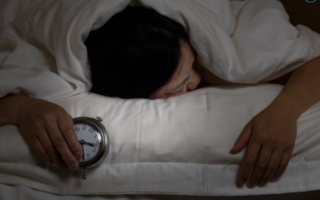To sleep with a pinched nerve in your neck and shoulder, use a supportive pillow and maintain a neutral spine. Avoid sleeping on your stomach, as it can exacerbate pain.
A pinched nerve in the neck and shoulder can significantly disrupt your sleep. Finding the right sleeping position and using appropriate support can alleviate discomfort. Choosing a supportive pillow that maintains the natural curve of your neck is crucial. Side sleepers should place a pillow between their knees to keep the spine aligned.
Gentle stretches before bed can also help relax the muscles. Keeping your spine in a neutral position reduces pressure on the pinched nerve, promoting better sleep. Avoiding stomach sleeping is essential, as it can strain the neck and worsen symptoms.
Table of Contents
Understanding Pinched Nerve In Neck And Shoulder
Dealing with a pinched nerve in your neck and shoulder can make sleep a challenging task. Understanding the condition is the first step toward finding relief. This post explores the causes, symptoms, and effective ways to sleep better with a pinched nerve in the neck and shoulder.
What Is A Pinched Nerve?
A pinched nerve occurs when there is excessive pressure on a nerve by surrounding tissues such as bones, cartilage, muscles, or tendons. This pressure disrupts the nerve’s function, causing pain, tingling, numbness, or weakness.
Key points about a pinched nerve:
- Pressure on the nerve: Can come from various sources including herniated discs or bone spurs.
- Disruption of function: Affects the nerve’s ability to send signals effectively.
- Pain and discomfort: Common symptoms include sharp pain or a burning sensation.
Pinched nerves can occur anywhere in the body but are most common in areas where nerves travel through narrow spaces.
Causes Of Pinched Nerve In Neck And Shoulder
Several factors can cause a pinched nerve in the neck and shoulder. Understanding these causes can help in preventing and managing the condition.
- Herniated Disc: When the soft inner material of a spinal disc pushes out through a tear in the outer layer, it can compress nearby nerves.
- Bone Spurs: These bony growths can form due to arthritis or other conditions and may pinch nerves.
- Injury: Trauma from accidents or sports can lead to nerve compression.
- Poor Posture: Consistently slouching or improper ergonomics can strain the neck and shoulder muscles, leading to nerve compression.
Below is a table summarizing the common causes of a pinched nerve:
| Cause | Description |
|---|---|
| Herniated Disc | Disc material protrudes and compresses nerves |
| Bone Spurs | Bony outgrowths that impinge on nerves |
| Injury | Trauma causing nerve compression |
| Poor Posture | Strain from bad posture leading to nerve issues |
Symptoms Of Pinched Nerve In Neck And Shoulder
Recognizing the symptoms of a pinched nerve is crucial for timely treatment. Common symptoms include:
- Pain: Sharp or burning pain in the neck and shoulder area.
- Tingling: A sensation similar to “pins and needles,” often radiating down the arm.
- Numbness: Loss of sensation in the affected area.
- Weakness: Muscle weakness in the neck, shoulder, or arm.
These symptoms can vary in intensity and may worsen with certain activities. For example, turning your head or lifting objects can aggravate the pain.
Below is a summary table of symptoms:
| Symptom | Description |
|---|---|
| Pain | Sharp or burning sensation |
| Tingling | “Pins and needles” feeling |
| Numbness | Loss of sensation |
| Weakness | Muscle weakness |
If you experience any of these symptoms, it is essential to consult a healthcare professional for accurate diagnosis and appropriate treatment.
Effects Of Pinched Nerve On Sleep
Dealing with a pinched nerve in your neck and shoulder can be a nightmare, especially at bedtime. The discomfort often disrupts sleep, leaving you tired and irritable the next day. Understanding the effects of a pinched nerve on sleep can help you manage symptoms better and improve your overall sleep quality. Let’s explore how a pinched nerve affects sleep and common sleep problems associated with it.
How Pinched Nerve Affects Sleep Quality
A pinched nerve can severely impact sleep quality. The constant pain and discomfort make it difficult to find a comfortable sleeping position. This often leads to tossing and turning throughout the night. Here are some ways a pinched nerve affects sleep quality:
- Disrupted Sleep Cycles: The pain can wake you up frequently, preventing you from reaching deep sleep stages.
- Increased Stress Levels: Lack of sleep can increase stress and anxiety, which in turn can worsen the pain.
- Reduced Sleep Duration: You may get fewer hours of sleep due to prolonged periods of wakefulness at night.
- Muscle Stiffness: Lack of movement during sleep can lead to muscle stiffness, exacerbating the pinched nerve.
In summary, pinched nerves significantly degrade sleep quality by causing pain, disrupting sleep cycles, and increasing stress levels. Finding ways to alleviate the pain can help improve sleep quality.
Common Sleep Problems Associated With Pinched Nerve
People with a pinched nerve often face multiple sleep problems. These issues can vary in intensity and frequency. Below are some common sleep problems:
- Insomnia: The pain can make it hard to fall asleep or stay asleep, leading to insomnia.
- Frequent Awakenings: Pain can cause you to wake up several times during the night, interrupting your sleep.
- Sleep Apnea: In some cases, a pinched nerve can exacerbate sleep apnea symptoms, leading to breathing difficulties.
- Restless Sleep: Constant shifting and turning to find a comfortable position can make your sleep restless.
Addressing these sleep problems involves managing the pain and finding a comfortable sleeping position. Using pillows for support, sleeping on your back, and taking pain relief medications can help reduce these issues.

Creating A Sleep-friendly Environment
Struggling with a pinched nerve in your neck and shoulder can make sleep elusive. Creating a sleep-friendly environment is crucial for alleviating discomfort and ensuring restful sleep. Here are some tips for optimizing your bedroom for better sleep.
Choosing The Right Mattress And Pillow
A good mattress and pillow play a pivotal role in supporting your neck and shoulder. Here are some tips to help you make the right choice:
- Mattress Firmness: Opt for a medium-firm mattress that offers adequate support and aligns with your spine.
- Memory Foam: Consider a memory foam mattress for its ability to conform to your body’s shape, reducing pressure points.
- Pillow Height: Choose a pillow that keeps your neck aligned with your spine. Avoid pillows that are too high or too low.
- Specialty Pillows: Cervical pillows or orthopedic pillows can offer additional support for your neck.
| Type | Benefits |
|---|---|
| Memory Foam Mattress | Conforms to body shape, reduces pressure points |
| Medium-Firm Mattress | Provides adequate support, promotes spinal alignment |
| Cervical Pillow | Offers neck support, maintains proper alignment |
Investing in the right mattress and pillow can significantly ease your discomfort and enhance your sleep quality.
Optimizing Your Sleeping Position
The position you sleep in can impact the severity of your symptoms. Here are some tips for finding the best sleeping position:
- Back Sleeping: Sleeping on your back with a pillow under your knees helps maintain the natural curve of your spine.
- Side Sleeping: If you prefer side sleeping, place a pillow between your knees. This keeps your spine in a neutral position.
- Avoid Stomach Sleeping: Stomach sleeping can strain your neck and shoulders, worsening your symptoms.
- Neck Support: Ensure your pillow supports the natural curve of your neck.
Here’s a quick guide to sleeping positions:
| Position | Benefits |
|---|---|
| Back Sleeping | Maintains spinal alignment, reduces neck strain |
| Side Sleeping | Keeps spine neutral, reduces shoulder pressure |
| Stomach Sleeping | Not recommended, increases neck and shoulder strain |
Experiment with different positions to find what works best for your body and alleviates your pain.
Creating A Calming Bedroom Environment
A calming environment can promote better sleep and reduce discomfort. Here are some tips to create a serene sleep space:
- Darkness: Ensure your bedroom is dark. Use blackout curtains to block out light.
- Quietness: Keep your room quiet. Consider using earplugs or a white noise machine.
- Cool Temperature: Maintain a cool room temperature, ideally between 60-67°F (15-19°C).
- Aromatherapy: Use calming scents like lavender to promote relaxation.
- Declutter: Keep your bedroom tidy to create a peaceful atmosphere.
Here’s a checklist for a calming bedroom:
| Element | Action |
|---|---|
| Darkness | Use blackout curtains |
| Quietness | Use earplugs or white noise machine |
| Temperature | Keep room between 60-67°F (15-19°C) |
| Aromatherapy | Use lavender scents |
| Declutter | Keep bedroom tidy |
Creating a calming bedroom environment can make a significant difference in your sleep quality and help manage the pain from a pinched nerve.
Developing A Bedtime Routine
A pinched nerve in the neck and shoulder can make sleep challenging. Developing a bedtime routine can help ease the discomfort and improve sleep quality. Establishing consistent habits is key. This guide will provide some effective tips to get you started.
Relaxation Techniques To Relieve Nerve Pain
Relaxation techniques can greatly reduce nerve pain before bed. Here are some methods:
- Deep Breathing: Focus on slow, deep breaths. Inhale through your nose, hold for a few seconds, then exhale through your mouth. This helps calm the nervous system.
- Progressive Muscle Relaxation: Tense and then slowly release each muscle group, starting from your toes up to your head. This reduces tension in your body.
- Visualization: Picture a peaceful scene or a place you love. This can distract your mind from the pain.
Here’s a simple table to summarize these techniques:
| Technique | Description |
|---|---|
| Deep Breathing | Inhale through nose, hold, exhale through mouth |
| Progressive Muscle Relaxation | Tense and release each muscle group |
| Visualization | Imagine a peaceful scene |
Stretching Exercises For Neck And Shoulder
Stretching can alleviate the pain caused by a pinched nerve. Here are some effective exercises:
- Neck Tilt: Sit or stand up straight. Tilt your head towards one shoulder, hold for 15-30 seconds, then switch sides. Repeat 3 times.
- Shoulder Roll: Roll your shoulders forward for 30 seconds, then backward for 30 seconds. Do this 3 times.
- Chin Tuck: Gently tuck your chin to your chest and hold for 15 seconds. Repeat 3 times.
Remember to perform these exercises slowly and gently to avoid further injury. Below is a table summarizing these exercises:
| Exercise | Description |
|---|---|
| Neck Tilt | Tilt head to shoulder, hold for 15-30 seconds |
| Shoulder Roll | Roll shoulders forward and backward for 30 seconds each |
| Chin Tuck | Tuck chin to chest, hold for 15 seconds |
Avoiding Stimulating Activities Before Bed
Avoiding stimulating activities before bed can help improve sleep quality. These activities keep your mind active and make it harder to fall asleep. Here are some tips:
- Limit Screen Time: Avoid screens at least one hour before bed. The blue light from devices can disrupt your sleep cycle.
- Avoid Caffeine: Skip coffee, tea, and soda in the evening. Caffeine can keep you awake.
- Establish a Wind-down Routine: Engage in calming activities like reading a book, taking a warm bath, or listening to soft music.
These steps can help create a more restful environment. Below is a table summarizing these tips:
| Activity | Description |
|---|---|
| Limit Screen Time | Avoid screens 1 hour before bed |
| Avoid Caffeine | Skip coffee, tea, soda in the evening |
| Wind-down Routine | Read, take a bath, or listen to music |
Pain Management Strategies
Dealing with a pinched nerve in the neck and shoulder can be incredibly painful, especially when trying to sleep. Implementing effective pain management strategies can significantly improve your sleep quality. Here are some essential tips for managing pain to help you get a good night’s rest.
Over-the-counter Pain Medications
Taking over-the-counter (OTC) pain medications can provide quick relief for a pinched nerve. These medications help reduce inflammation and alleviate pain, making it easier to fall asleep.
Common OTC pain medications include:
- Ibuprofen: Reduces inflammation and pain.
- Acetaminophen: Alleviates pain but does not reduce inflammation.
- Aspirin: Provides pain relief and reduces inflammation.
Always follow the recommended dosage instructions on the packaging. If unsure, consult with a healthcare professional to determine the best medication for your situation.
Table of Common OTC Pain Medications:
| Medication | Purpose | Dosage |
|---|---|---|
| Ibuprofen | Reduce inflammation and pain | 200-400 mg every 4-6 hours |
| Acetaminophen | Alleviate pain | 500-1000 mg every 4-6 hours |
| Aspirin | Pain relief and reduce inflammation | 325-650 mg every 4-6 hours |
Heat And Cold Therapy For Pain Relief
Heat and cold therapy can be very effective in managing pinched nerve pain. Alternating between heat and cold helps reduce inflammation and relaxes the muscles.
- Use a heating pad or warm towel.
- Apply the heat to the affected area for 15-20 minutes.
- Repeat several times a day as needed.
- Use an ice pack or a bag of frozen peas.
- Wrap the cold pack in a thin towel.
- Apply to the affected area for 15-20 minutes.
- Repeat several times a day as needed.
Avoid applying heat or cold directly to the skin to prevent burns or frostbite. Alternate between heat and cold for the best results.
Topical Creams And Ointments
Topical creams and ointments can provide targeted pain relief for a pinched nerve. These products are applied directly to the skin and work by numbing the area or reducing inflammation.
- Menthol-based creams: Provide a cooling sensation to numb the pain.
- Capsaicin creams: Block pain signals and reduce inflammation.
- NSAID creams: Contain anti-inflammatory drugs to reduce swelling and pain.
Apply these creams or ointments according to the instructions on the packaging. Wash your hands thoroughly after application to avoid getting the product in your eyes or mouth. If you experience any skin irritation, discontinue use and consult a healthcare professional.
Using these pain management strategies can help you sleep better despite having a pinched nerve in your neck and shoulder. Always consult with a healthcare professional before starting any new treatment.
Alternative Therapies For Sleep And Nerve Pain
Experiencing a pinched nerve in the neck and shoulder can make sleep feel impossible. The discomfort and pain can keep you tossing and turning all night. Fortunately, alternative therapies can help relieve nerve pain and improve sleep quality. These methods can provide natural and effective solutions to help you rest better.
Acupuncture For Pain Relief And Better Sleep
Acupuncture is a traditional Chinese medicine technique that involves inserting thin needles into specific points on the body. This practice can alleviate pain and enhance sleep quality. Many people find acupuncture to be a relaxing and effective treatment for nerve pain.
Benefits of Acupuncture:
- Pain Reduction: Acupuncture helps release endorphins, which are natural painkillers.
- Improved Sleep: It can regulate the body’s energy flow, promoting relaxation and better sleep.
- Stress Relief: Acupuncture reduces stress and anxiety, which can improve sleep quality.
Here is a table summarizing the benefits:
| Benefit | Explanation |
|---|---|
| Pain Reduction | Releases endorphins, natural painkillers |
| Improved Sleep | Regulates energy flow, promotes relaxation |
| Stress Relief | Reduces stress and anxiety |
Chiropractic Adjustments For Nerve Compression
Chiropractic adjustments focus on aligning the spine and relieving pressure on nerves. This non-invasive treatment can be beneficial for those suffering from a pinched nerve in the neck and shoulder.
Benefits of Chiropractic Adjustments:
- Spinal Alignment: Proper alignment can relieve nerve pressure and reduce pain.
- Improved Mobility: Chiropractic care can enhance the range of motion in the neck and shoulder.
- Natural Pain Relief: This method avoids the need for medications or surgery.
Here is a table summarizing the benefits:
| Benefit | Explanation |
|---|---|
| Spinal Alignment | Relieves nerve pressure, reduces pain |
| Improved Mobility | Enhances range of motion |
| Natural Pain Relief | Avoids medications or surgery |
Massage Therapy For Relaxation And Pain Reduction
Massage therapy involves manipulating the muscles and tissues to relieve tension and pain. This therapy can be particularly effective for those with a pinched nerve in the neck and shoulder.
Benefits of Massage Therapy:
- Muscle Relaxation: Massage can reduce muscle tension and alleviate pain.
- Improved Blood Flow: Enhanced circulation can aid in healing and pain relief.
- Stress Reduction: Massage promotes relaxation and reduces stress levels.
Here is a table summarizing the benefits:
| Benefit | Explanation |
|---|---|
| Muscle Relaxation | Reduces muscle tension, alleviates pain |
| Improved Blood Flow | Enhances circulation, aids healing |
| Stress Reduction | Promotes relaxation, reduces stress |
Frequently Asked Questions
How Should I Sleep With A Pinched Nerve In My Neck And Shoulder?
To sleep with a pinched nerve in your neck and shoulder, try using a supportive pillow. Sleep on your back or side with a pillow between your knees for alignment. Avoid sleeping on your stomach. Apply heat or ice before bed for pain relief.
How Can I Relax My Neck And Shoulders While Sleeping?
Use a supportive pillow to align your spine. Sleep on your back or side. Stretch before bed to ease tension. Maintain a comfortable room temperature.
What To Do When You Wake Up With A Pinched Nerve In Your Neck?
Gently stretch your neck to alleviate pain. Apply ice or heat to the affected area. Take over-the-counter pain relievers. Maintain good posture. Consult a healthcare professional if pain persists.
What Are The Best Positions To Sleep For Shoulder And Neck Pain?
Sleep on your back with a pillow under your knees. Use a supportive pillow for neck alignment. Side sleeping with a pillow between your knees also helps.
Conclusion
Achieving restful sleep with a pinched nerve in the neck and shoulder is possible. Use proper sleep positions and supportive pillows. Incorporate stretches and relaxation techniques before bedtime. Always consult a healthcare professional for personalized advice. Prioritize your comfort and well-being to improve sleep quality.
Sweet dreams await with these simple adjustments.



